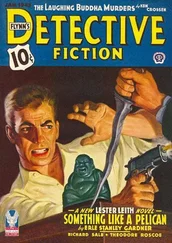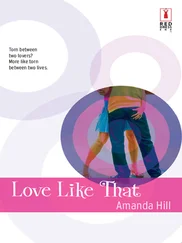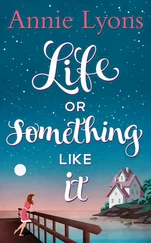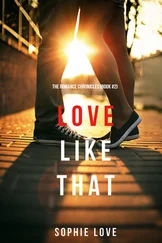So therefore, the whole long journey I have to be standing and taking advice from everybody about my smelling mouth problem. It wasn’t easy o, forty-nine people against only me. Those people, they nearly killed me with advice, I swear to God. And anytime I wanted to explain, they will just be shouting that I should shut up. Anyhow, to cut short long story, by the time I reached my bus stop they have analyzed the whole of my life and they have told me all the things that are causing my smelling mouth problem. So that is the reason why I went to the dentist today.
The first time I met him I shook his hand and nodded when he told me his name, told me about his job and how happy he was to meet me. I had just arrived in the town. It had been a long journey: I was road-grimy, irritable, and looking forward to sleep. I got down from the hired car and a small group of men standing in front of my hotel lobby rushed forward, calling my name. They closed around me, all smiles and jabbing hands and drumming voices, new faces and names. He was with them, a man of medium height — maybe five-eight, same as me — with skin the color of rotted wood. On both cheeks he had tiger-claw scars: long, deep, in quadruplet. I wondered if his tribal marks were the reason his smile was shy, wondered if I would ever meet him again. When he said his name I nodded and looked interested, but did not repeat it, did not memorize it, so his name, like him, the person, the face, was forgotten.
I woke up the next morning feeling refreshed. After a big breakfast in my room I went downstairs to the hotel lobby to meet the president, vice president, public relations officer, and treasurer of Frontrunners Club. These four were the leaders of the men’s social club that had invited me to run a five-day leadership workshop for its members. In my first seminar later that morning I introduced myself to the class, learned the names of my thirty-three students, and talked about my accomplishments. My opening address took longer than I had planned, and the signal for lunchtime — the president’s mobile phone alarm — interrupted me. The class resumed from the one-hour break one hour later. Despite grumbles from the students, I stuck to my lesson notes, I touched on every point I had put to paper. It was early evening by the time I finished, and my throat itched from talking. I needed a beer.
I stopped at the open-air bar opposite my hotel building. Whenever I drank beer, I chose Star. I’d placed my order with the bartender — she wore a short flared skirt, pretty, and she had a cushiony behind, strong calves, small-boned feet — and I was waiting for her to return with my drink so I could crack a joke to soften her up, maybe ask for her mobile phone number, when I felt a hand on my shoulder. I looked up. The name, Babasegun, did not mean anything to me. I did not recognise the face. At the expression on my face, his smile slipped, he dropped his hand. “I was part of the welcoming committee that met you at your hotel yesterday.”
“Oh, yes,” I said, remembering. “You’re the secondary school teacher.”
He nodded yes, and stood his ground, so I asked him to sit.
“Thank you, sir,” he said. He walked to a nearby table, picked up a plastic chair, brought it over, set it down, and sat facing me. I extended my hand; his grip was bold.
“Call me Iggy,” I said.
The bartender returned without my beer. She stood by my left shoulder, her hip brushing my elbow. The bar had run out of Star, she said.
“Bring two bottles of Trophy,” Babasegun said.
She walked away, her bottom rolling. “Is Trophy a beer?” I asked.
“Yes, our local brand. They brew it not far from here. It’s cheaper than all those big-name beers. It’s strong, it’s for tough men. And it’s low in sugar, so it won’t give you piles. Try it once and you’ll never go back.” He paused. I glanced at him, caught his gaze swinging away. “You like women,” he said.
“Who doesn’t?”
He flicked his bright pink tongue over his lips. “How long will you be in town?”
“Four days. But shouldn’t you know that already?”
“No,” he said, shaking his head. “I’m not a member of Frontrunners Club. I used to be, but not anymore. I only came to show support yesterday. I don’t know the details of your program.”
Seconds after he finished speaking there was a low, vibrating sound, and a square of light shone in his breast pocket. Then the phone rang. The ringtone was a Tupac song I loved, a song I had learned by heart maybe twelve, thirteen years ago. At the time I was in my second year of university. I was a shave-my-head, pierce-my-nose, hate-the-East-Coast-and-Biggie 2pac fan. I was still with Comfort, my first girlfriend. I used to rap the song to her, chopping the air with my hands, playacting my martyred hero. These days, whenever I listened to rap, I chose Kanye West. Comfort was now a married woman with two children. Yet the memories flooded in like a sugar rush, floating on that unforgettable tune.
Babasegun pulled out the phone, glanced at the screen, cut the call.
“ Still I Rise. Brilliant song,” I said.
He looked at me, smile spreading across his features. “You like Tupac?”
The phone rang again. On impulse I sat forward, raised my hands in front of my face, and shaped my palms into blades. Karate chopping the air, I rapped along.
Somebody wake me I’m dreaming, I started as a seed the semen
Swimming upstream, planted in the womb while screaming. .
Babasegun joined in, eyes wide, teeth glinting. Our voices rang out in unison.
On the top, was my pops, my momma screaming stop
From a single drop, this is what they got—
The call ended, the song stopped. I tried to keep a straight face but my teeth kept pushing through my lips. I wanted the phone to ring again.
“So,” I said into the silence. “Now you know. I love Tupac.”
“ My man!” Babasegun said in a drawling, mock-Yankee tone, and raised his right hand, fingers spread in a West Coast W.
As we talked I saw him clearer. He wore open leather sandals, neat blue jeans, and a white T-shirt with “Mombasa” stamped on the front in red letters. He told me about his wife and three sons aged eight, six, and three. About his father, who died of lung cancer the same month his twelfth grandchild — Babasegun’s first son — was born. Who left behind seven widows and a reputation for hard partying that was unsurpassed in the town.
The bartender returned with our drinks and two glasses in a tray. She set the tray on the table, placed the bottles in front of us, and arranged the glasses. She bent forward to uncap his beer. Frost escaped from the bottle’s mouth. She grasped my bottle by the neck. “Wait,” Babasegun said.
She looked at him. So did I.
“Iggy, this is Wunmi. She’s new in town. She just came three weeks ago. If I wasn’t married, there would have been trouble o. Wunmi is a very nice girl.”
“And pretty too,” I said, grinning at her.
“Hear me, Wunmi.” He held her gaze, his face stern. “Iggy is a special guest, a VIP from Poteko. He has come to do important work here. Treat him well, make him feel at home. I want the two of you to be good friends.” He switched to Yoruba. Something he said made the bartender clench her dark, full lips. She threw a sideways glance at me and said, “Welcome, sah.” She uncapped my beer, picked up the tray, flounced away. I watched her go.
“If you want to fuck her, the ball is now in your court,” Babasegun said.

He owned a car, an old boxy Saab. Gray, rain-colored, upholstered in black vinyl. The tape player was a museum piece: the dials were Soviet-era utilitarian, and its sound was tinny, elemental. The glove compartment was crammed full of audio cassettes. He leaned across to pop it open, dug his hand into the pile, drew out several cassettes, and examined them under the screen light of his Samsung phone. “I have many, many Tupac songs,” he said, and belched.
Читать дальше
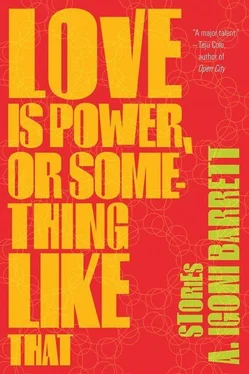

![Сьюзан Кейн - Quiet [The Power of Introverts in a World That Can't Stop Talking]](/books/33084/syuzan-kejn-quiet-the-power-of-introverts-in-a-wo-thumb.webp)
